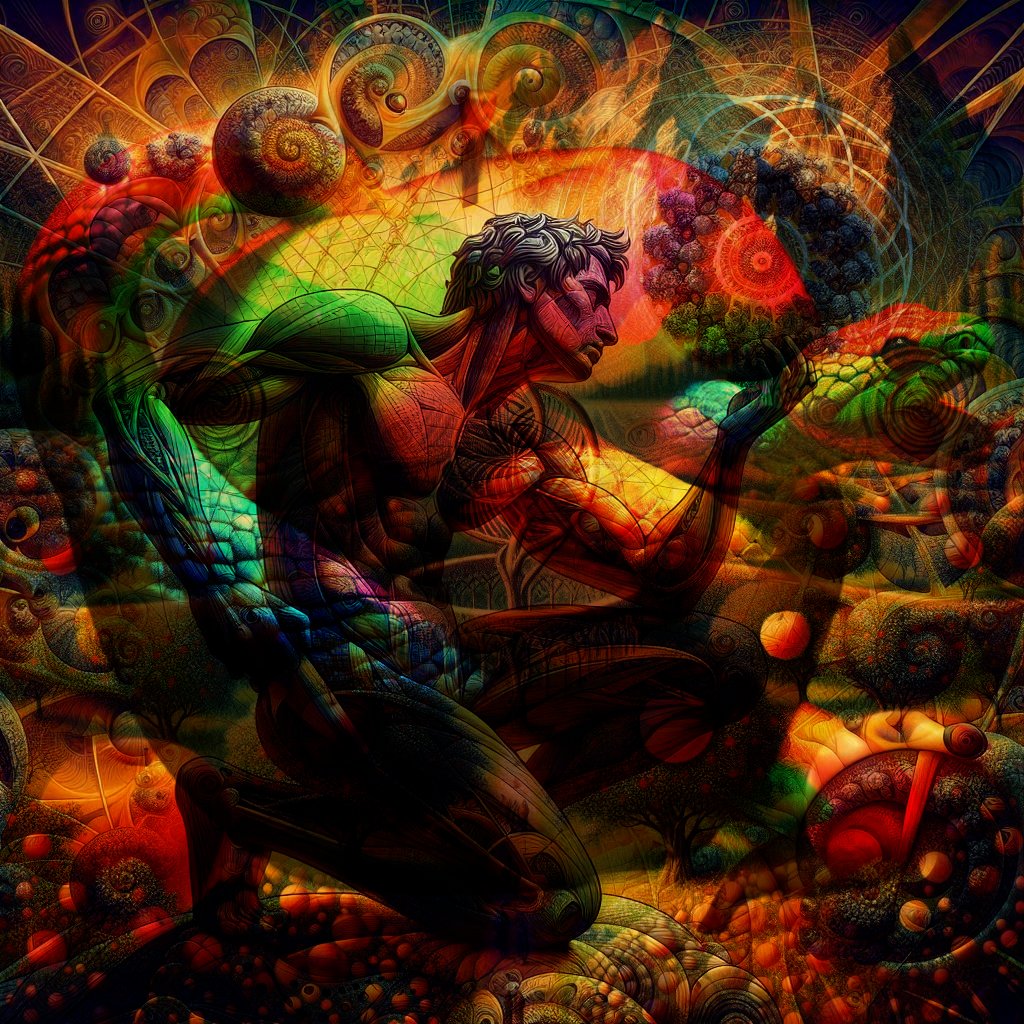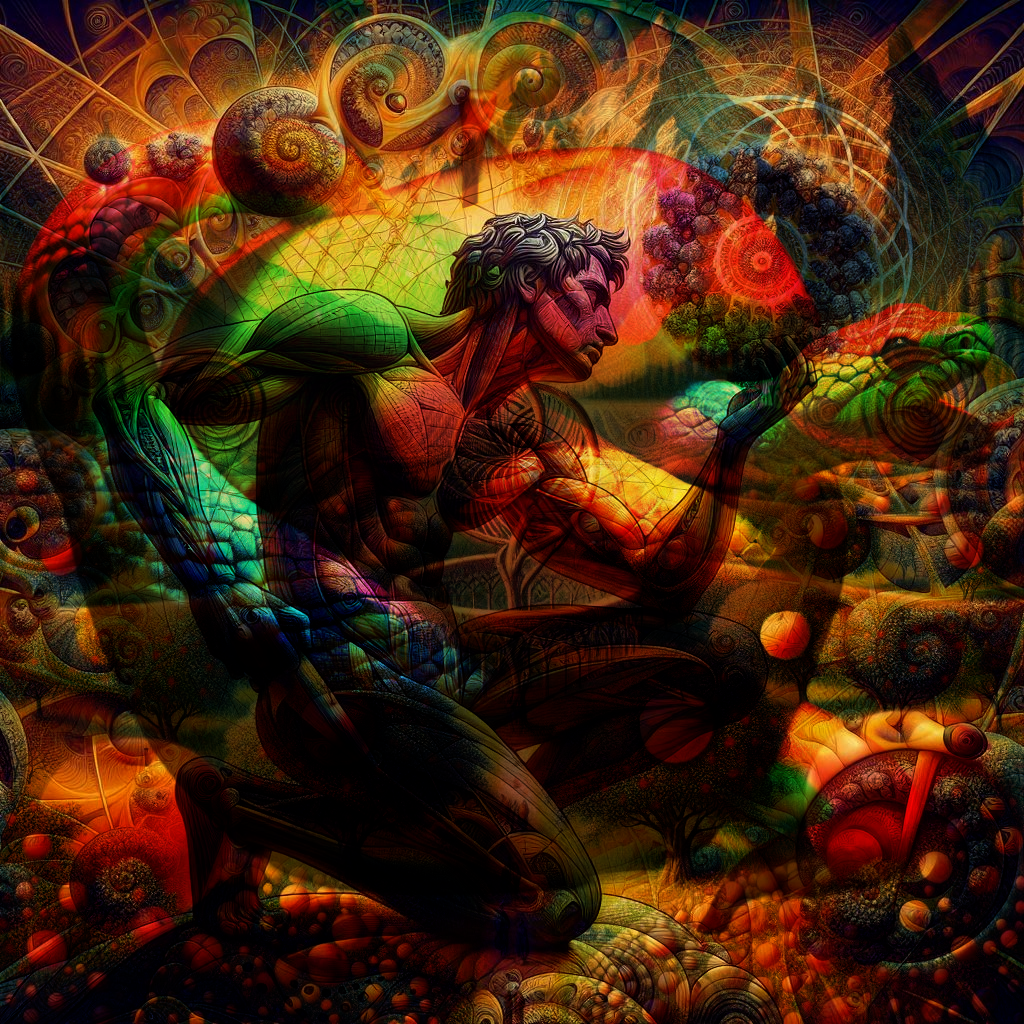
this intuition is false
I’ve been thinking more about Kurt Gödel and his incompleteness theorems, ① that attack on formalism with reference to his intuitive Platonism, and ② the observer around which many human efforts are now circling, or circulating.
Recommended reading: Alexander T Englert. “Kurt Gödel, His Mother and the Argument for Life after Death.” Aeon. 2 January 2024. https://aeon.co/essays/kurt-godel-his-mother-and-the-argument-for-life-after-death
①
If, as it is suggested, that there is something more going-on than the rule mechanicks of rude logicks 'generate' (because | incompleteness) and that this 'something more' _can_ be intuited. Then perhaps some people might take (circularly a bit) incompleteness theorems of Kurt Gödel to be taken as evidence or support for this intuition (whether this 'should' be seen as karma, god or emergence is a separate discussion, see Pyrrhonism's suspension of judgement as a practice of remaining in gap).
Here I raise the question: does incompleteness or at least a gap-ish jag also apply to intuitions. Like, if I have an intuition that there is some equivalent of an incompleteness theorem (perhaps even Gödel's) that applies to or within a Platonic world of pure forms (in a strong sense) is my intuition good even when ‘undecideably undecideable'.
Or, what if I intuit that incompleteness _must_ apply in a Platonic world of pure ideal forms, because all ideal forms would have to include such incompleteness and undecideability or not be pure or complete, as in replete with everything and its possibilities.
Something along the lines of “this intuition is false”.
And instead of ‘for any formal system’ we just say “for any intuition there are intuitions that can not be reached or rejected, either in regard to intuitive ‘systems’ or to formal systems, and it is impossible to agree that, as an example, Platonic forms do or do not also required or suffer from the equivalent of incompleteness, such that this intuition is false, or at least, is not intuitively felt to be so, mapped or not."
Do incompleteness theorems apply, or, are they available, in ever more recursive systems? Is there an equivalent of transfinite numbers for incompleteness, incompleteness of incompleteness recursively metastasising? An infinity of incompleteness that encompasses all formal and intuitive instantiations?
It is my intuition that it is so. (Because | observer.)
What is it’s practical…¿use?
②
That’s the frame, the figure I wish to stare into is the observer more generally. With the rise of quantum physics and its finicky description of base physics relying an ‘observer’ in its very mathematics, one might intuit that an observer is somehow required.
My intuition is that this is the wrong way round. We come up with observer based answers, or better, resolutions, because that what we do; we watch and wait and see.
[Even our natural numbers of counting require a POV to mark out and score and diffrentiate and gather. Why assume (intuit?) these things exist in nature, or structure nature, when they just might merely be a part of our shouldy natures.]
I think this is the same with incompleteness theorems and seeing them as support for (Platonism/romanticism) by way of the example the undecidability inherent in formal systems is the wrong way around in these figure/ground debates.
(the figure can be ground to another figure)
This is the bad form of the anthropic principle, that things are the way they because if they were not we would not be here to witness and inquire into them. We are evidence of something. Our intuitions are evidence of something.

③
The intuition I had for this essay took two or three seconds to think through while I was removing blackberry brambles.
By comparison, by this stage, the first draft it has taken 50 minutes to get the nub of it down. I’ll leave it here as it is but I’ll correct a few typos.
Often when I go to jot down an idea, several pages can go by before it is down. (This is without the elaborations that I love.) An idea, an intution of seconds can be a book in its documentation, let alone proof. Or poof.
④
The practical use? For me the practical use is: all the above is what I am trying to get at when I talk about the Janus dance we do _in_ the gap. It's all gaps, it's figure/ground all the way down, dear observer.
The practical use is how we begin to inquire into what we do in the gap, not what we throw in it, or how we ignore it.
All the above is a lead.
